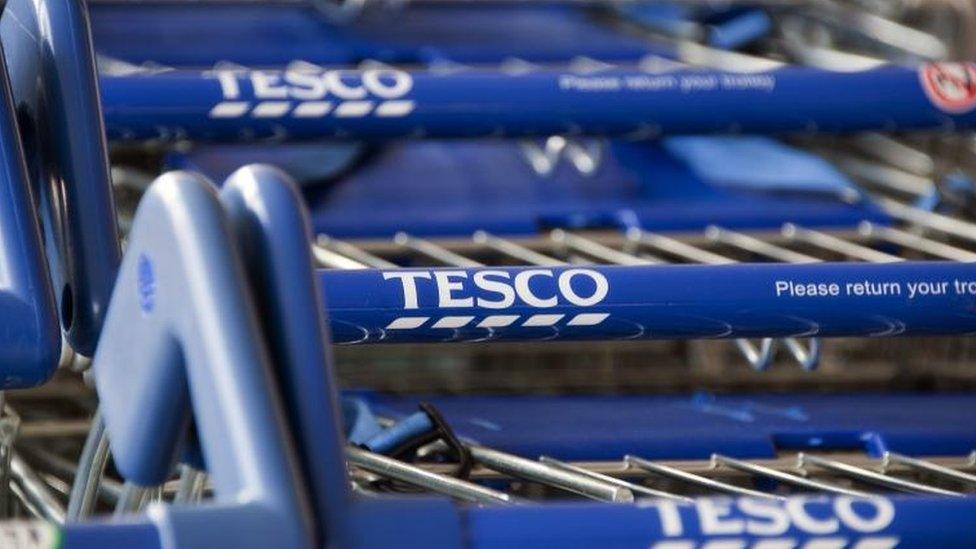Tesco: Another victory for pragmatism?
- Published

Hugely regrettable - that's how the chief executive of Tesco, Dave Lewis, described the two-and-a-half-year scandal that has spanned his entire time at the helm of the UK's largest retailer.
That is probably an understatement. One of his very first acts in charge was to face the media one morning in September 2014 to reveal Tesco executives had overstated profits by about £250m - a figure later revised up to £326m. The Serious Fraud Office (SFO) has been parked in Tesco's offices ever since.
Dave Lewis will be hoping that today's announcement that Tesco will pay a £129m fine and set up an £85m compensation fund for investors who bought after Tesco knew something was wrong but before it told anyone will draw a line under the whole sorry episode.
A Deferred Prosecution Agreement (DPA) - which still has to be approved by the High Court - is a fairly new way (introduced in February 2014) of punishing a company for criminal behaviour without the collateral damage of a conviction (for example, sanctions or reputational damage that could put the company out of business and destroy the jobs and investments of innocent people).
This potential DPA with Tesco Stores Limited does not address whether liability of any sort attaches to Tesco PLC or any employee or agent of Tesco PLC or Tesco Stores Ltd.
DPAs may be fairly new, but they are instruments the SFO is warming to. Just last month it announced a DPA with Rolls-Royce which saw the company pay a UK fine of £500m. In that case, the judge agreed that a criminal conviction for the company could disbar it from securing contracts - particularly in the US - which in turn could threaten the jobs of thousands of UK workers.
A DPA also avoids lengthy and costly trials and puts the offending company on probation to ensure full co-operation in the future.
It also does NOT mean that individuals escape scot free while shareholders pay the price for their conduct. Three former executives from Tesco face criminal proceedings. The SFO also quizzed the former chief executive Phil Clarke, before dropping any further action against him.
In the Rolls-Royce case, the SFO has also turned its attentions from the company to former senior executives to establish who knew what and when about bribery allegations spanning 24 years.
All in all, it looks like an elegant solution to a difficult problem. The head of the SFO, David Green, will chalk this up as another victory for pragmatic regulation and enforcement. It will be interesting to see whether its decade long probe into the Qatari government's £7bn investment in Barclays at the height of the financial crisis will end in a similar outcome.
One reason it might not is that DPAs are supposedly reserved for companies that co-operate fully. Barclays withheld vital documents for many years on the basis of legal privilege.
One reason it might is the £5bn investment in the UK announced by self same Qatari government just yesterday. Would pursuing an action involving a foreign investor, who arguably was trying to prevent a UK bank being nationalised back in 2009, be the best way to say the UK welcomed overseas investment?
As I said at the time of the Rolls-Royce agreement, when it comes to ethics versus jobs and money, jobs and money usually come out on top.